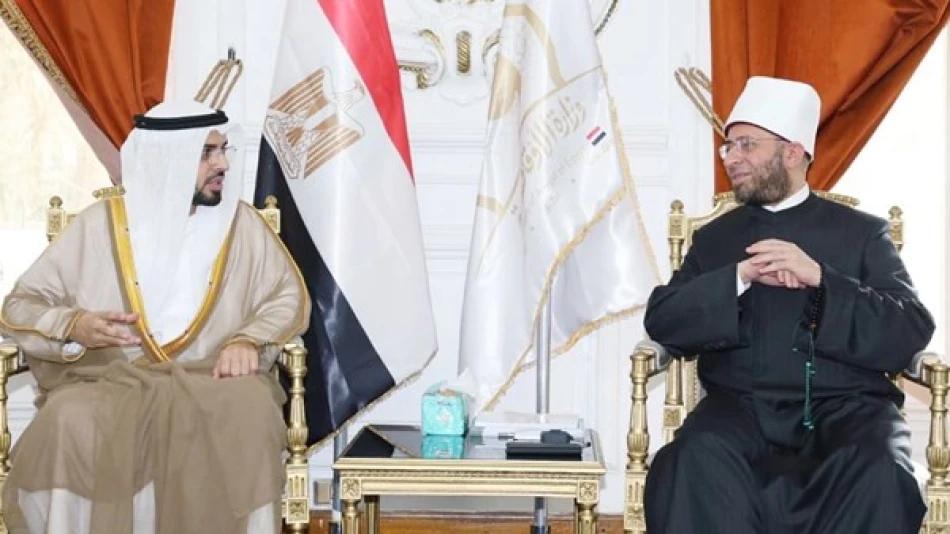
UAE Islamic Affairs Authority Chief Discusses Boosting Cooperation with Egypt's Minister of Endowments
UAE and Egypt Forge Religious Cooperation Alliance Amid AI-Era Islamic Jurisprudence Shift
The UAE and Egypt have strengthened bilateral religious cooperation through a high-level meeting between their top Islamic affairs officials, signaling a strategic partnership to modernize religious guidance and community services as artificial intelligence reshapes Islamic jurisprudence. The discussions, held during Cairo's conference on "Crafting the Righteous Mufti in the Age of Artificial Intelligence," highlight the Gulf region's proactive approach to adapting traditional religious institutions to technological advancement.
Strategic Partnership Takes Shape
Dr. Omar Habtoor Al Darei, Chairman of the UAE's General Authority for Islamic Affairs, Endowments and Zakat, met with Dr. Osama Al-Azhari, Egypt's Minister of Endowments, to explore enhanced collaboration in religious education and community outreach programs. The timing of this partnership reflects both nations' recognition that religious institutions must evolve to remain relevant in an increasingly digital world.
The officials emphasized developing joint initiatives that promote religious awareness while serving their respective communities more effectively. This cooperation builds on the UAE's broader strategy of positioning itself as a moderate Islamic voice in the region, particularly as it continues to diversify its economy and strengthen international partnerships.
AI Revolution in Islamic Jurisprudence
Modernizing Traditional Roles
The conference theme—crafting religious scholars for the AI era—underscores a fundamental shift occurring across Islamic institutions globally. As artificial intelligence transforms how information is processed and disseminated, religious authorities face pressure to adapt their methodologies while maintaining doctrinal integrity.
This challenge mirrors similar adaptations seen in other sectors where traditional expertise meets technological disruption. The UAE's involvement suggests the Emirates is positioning itself at the forefront of this religious-technological integration, much as it has done with fintech and smart city initiatives.
Regional Leadership Dynamics
The UAE-Egypt collaboration reflects broader geopolitical alignments in the Middle East, where both countries have pursued pragmatic foreign policies and economic modernization. Egypt's Al-Azhar University, one of Islam's most prestigious institutions, brings scholarly credibility, while the UAE contributes technological innovation and financial resources.
Dr. Saba Salem Al Kaabi, Secretary-General of the UAE Fatwa Council, attended the discussions, indicating the institutional depth behind this cooperation. The UAE's systematic approach to religious modernization—evidenced by its structured fatwa council—demonstrates how smaller, resource-rich nations can influence larger traditional powers through strategic partnerships.
Implications for Islamic Governance
This partnership arrives as Gulf states increasingly assert soft power through religious and cultural initiatives. The UAE's emphasis on "tolerant Islamic values that promote tolerance, coexistence, and peace" aligns with its broader nation-branding efforts, particularly following the Abraham Accords and its hosting of diverse religious communities.
For Egypt, collaboration with the UAE offers access to advanced technological infrastructure and funding for religious programs, potentially revitalizing institutions that have faced economic constraints. The partnership could serve as a model for other Arab nations seeking to modernize religious education while maintaining cultural authenticity.
As artificial intelligence continues reshaping information access and religious guidance delivery, the UAE-Egypt alliance positions both nations to lead Islamic institutional adaptation rather than merely respond to technological change imposed from elsewhere.
Most Viewed News

 Layla Al Mansoori
Layla Al Mansoori






